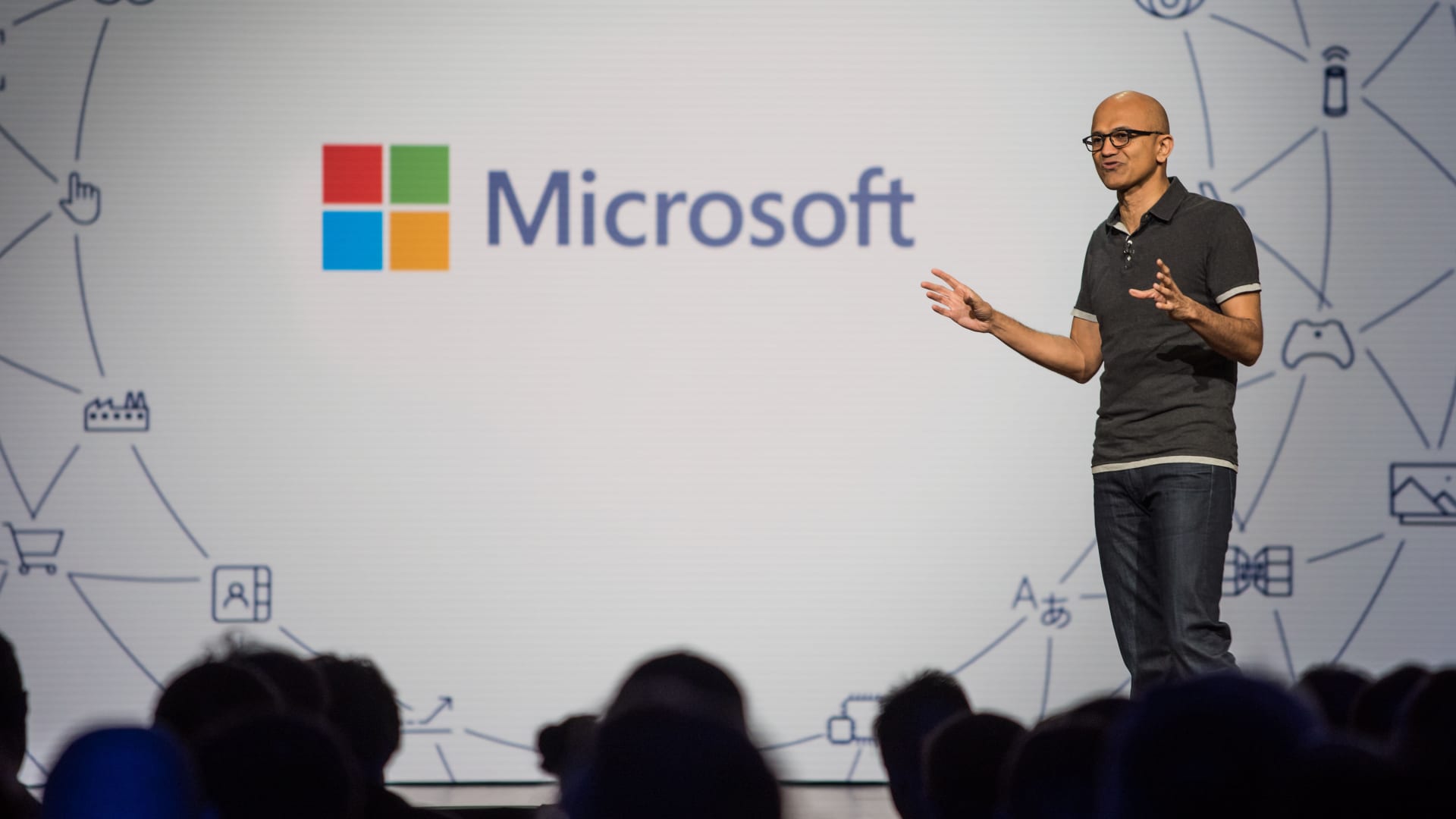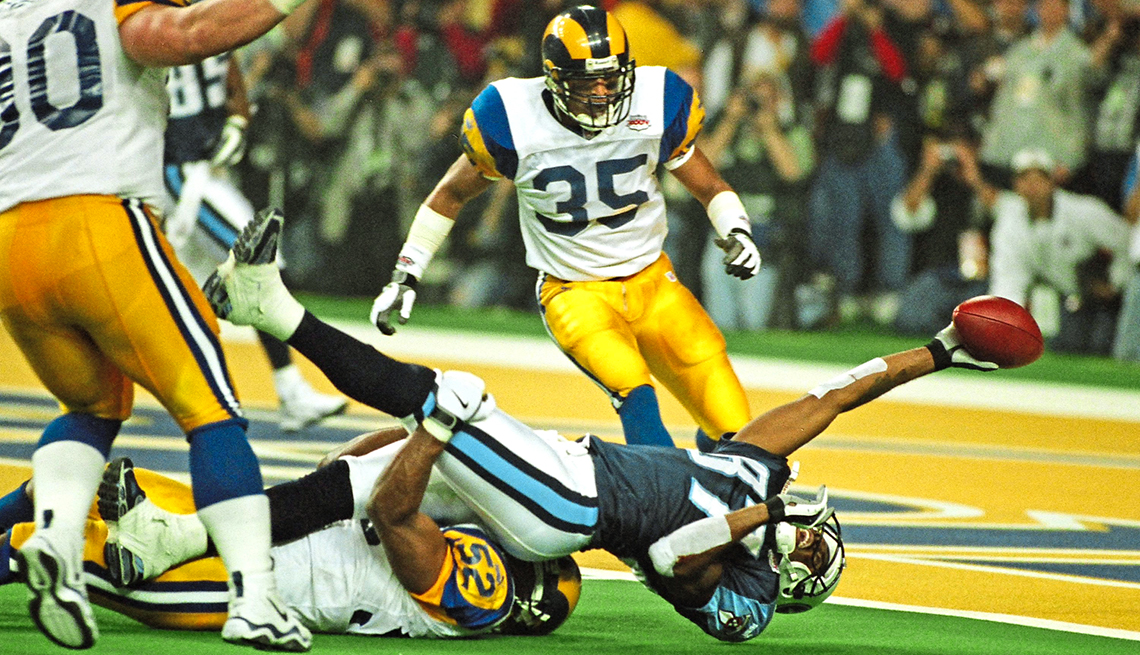
- Select a language for the TTS:
- UK English Female
- UK English Male
- US English Female
- US English Male
- Australian Female
- Australian Male
- Language selected: (auto detect) - EN
Play all audios:
ChatGPT — an artificial intelligence-powered chatbot — is having a viral moment, offering a high-profile glimpse at the maturing technology's capabilities. It also underscores our
investment theses in Nvidia (NVDA) and other Club holdings such as Microsoft (MSFT), which is an integral partner of the company behind the endeavor. At the same time, it's made some
wonder whether Google Search could one day be threatened. What is ChatGPT? We asked ChatGPT to explain what it is. Here's what it told us: ChatGPT is a variant of the GPT-3 language
model that is specifically designed for conversational text. It is a large language model that has been trained on a large amount of conversational text data, allowing it to generate
responses that sound more natural and human-like in a conversation. Like other GPT models, ChatGPT can generate text in a variety of styles and formats, including responses to questions,
descriptions, and even entire conversations. Of course, that answer is a bit technical, using abbreviations like GPT-3 — shorthand for Generative Pretrained Transformer 3. So, we also asked
ChatGPT to explain itself in "simple terms." Its answer: ChatGPT is a large language model that has been trained to generate human-like responses to text input. It uses machine
learning algorithms to process and analyze large amounts of conversational text data, and can generate responses that sound more natural and human-like in a conversation. This makes it
useful for applications such as chatbots, where it can generate responses to questions or statements that are more realistic and engaging for the user. ChatGPT was developed by OpenAI, a
research startup founded in 2015 that has received a $1 billion investment from Microsoft. ChatGPT launched in late November, and it quickly gained track traction as people posted
screenshots of its responses on Twitter and other social media platforms. Over 1 million users have signed up for ChatGPT . People asked ChatGPT all sorts of questions — including whether it
could explain a certain topic and write song lyrics. We even saw one Wall Street analyst, in a note to clients, include a ChatGPT-generated poem containing three buzzwords: semiconductors,
surveys and investors. Here was the first stanza: "As an investor, I do my due/ I take a survey, to see what's new/ In the world of semiconductors, a crucial part/ Of the
technology that drives the heart." While we find ChatGPT impressive and, frankly, fun, the model is far from perfect. It only generates text — although OpenAI does have an
image-generating model , DALL-E — and ChatGPT also cannot really answer questions on current events because it lacks "the ability to browse the internet," according to its own
response. Another limitation, for now, is scale. ChatGPT has sometimes returned an "at capacity" message, unable to handle new inquiries, because of "exceptionally high
demand." As always with artificial intelligence, there are ethical concerns about bias . Some have even worried that ChatGPT's responses sound so human-like, it's hard to tell
the difference, raising questions about its application in the real world and the accuracy of the information it's sending out. From an investment standpoint, though, the virality of
ChatGPT sheds light on how powerful artificial intelligence can be and its importance for Club holdings like Microsoft and Nvidia. Microsoft's involvement Not only did Microsoft invest
$1 billion in OpenAI, the technology giant's cloud computing division, Azure, is the digital land where ChatGPT resides. Microsoft worked with OpenAI to build a supercomputer
exclusively for the startup to use to train its models. That supercomputer — announced in May 2020 — is hosted on Azure. While ChatGPT may be a fun way to generate poems, Microsoft's
collaboration with OpenAI has business implications because customers value the tools and integrations offered by cloud service providers. Microsoft recently folded OpenAI's DALL-E
image-generating tool into its Azure OpenAI Service, and Microsoft CEO Satya Nadella said the toymaker Mattel (MAT) is already tapping into its commercial use cases. "The OpenAI
partnership is a very critical partnership for us," Nadella said on the company's fiscal first-quarter earnings call, in October. Sam Altman, the CEO of OpenAI, also has praised
Microsoft's role with the startup. The growth of Azure is central to our long-term investment thesis in Microsoft, and artificial intelligence is playing an increasingly prominent role
in cloud computing. Companies use Azure's AI and machine learning tools for a variety of integral tasks, not just advanced language models. They can be used to help businesses
streamline their operations, generate software code and build forecast demand models. For example, PepsiCo (PEP) uses Azure Machine Learning (ML) to better predict product sales. Machine
learning is a subgroup of AI. "All-up, Azure ML revenue has increased more than 100% for four quarters in a row," Nadella also said on Microsoft's Q1 call. Azure's
overall sales growth has moderated in recent quarters, as fears of an economic slowdown percolate among business customers. However, we remain bullish on the long-term trajectory of Azure
and think its artificial intelligence and machine learning tools will help fuel further cloud adoption as customers tap into their potential to improve their own enterprises. ChatGPT is only
the tip of the iceberg. In that sense, what's good for Microsoft can translate into success for other Club names, particularly chipmakers such as Nvidia and Advanced Micro Devices
(AMD). Nvidia, other chipmakers Semiconductors, as we've said before , are the brick-and-mortar of the digital world, and one thing this ChatGPT launch makes clear is that artificial
intelligence applications are going to drive demand for computing power for years to come. That's good for Nvidia, whose chips are capable of delivering those processing capabilities.
It's still very early days, to be sure. With a few more years of research and a focus on industry-specific tasks, broad-based adoption of natural-language models is very likely. We see
it all the time now, automated chatbots or voice systems that can provide some help but just don't match up to a human representative. ChatGPT appears to be far more capable than any
chatbots currently in use. With additional research, we believe it will no doubt close the gap between how helpful an automated customer service system is versus a human counterpart. The
more advanced these models become, with broader-based adoption, the more computing power is required. That's where other data center-oriented chipmakers, such as AMD, also stand to
benefit. All those companies will no doubt benefit. However, Nvidia, in particular, stands to be a key beneficiary and larger driver of adoption thanks to not only its cutting-edge graphic
chip offerings but also decades of investments in AI software programming — such as Omniverse Avatar for Intelligent Virtual Assistants . Nvidia actually employs more software engineers than
hardware engineers and develops software programs that complement its high-powered graphics processing units (GPU) in areas like AI. Google Search threat? ChatGPT's impressive
capabilities have prompted some people to wonder whether it could, over time, threaten Google Search as the dominant online search engine. It is understandably on people's minds. But,
ultimately, we don't think ChatGPT poses a real risk to Google-parent Alphabet 's (GOOGL) primary revenue driver. That view is also shared by analysts at Morgan Stanley.
"While we are not dismissive of disruptive technologies, we continue to believe that technologies need to offer 10X better solutions than the second best offering to drive significant
(aka billions of people) behavioral change," the analysts wrote. Additionally, Club holding Alphabet is no stranger to artificial intelligence — and, more specifically, machine
learning. Both already play a key role in shaping how Google Search performs today, and the tech giant is investing in more experimental, high-level applications. Alphabet also applies AI
research to many other fields including cloud services with its Google Cloud unit, autonomous driving and more. "We estimate roughly 50% of GOOGL's headcount is engineers, with our
industry conversations continuing to indicate GOOGL is the big cap tech leader of AI/ML research and investment," Morgan Stanley wrote. As of Sept. 30, Alphabet had nearly 187,000
employees, according to a quarterly filing . Alphabet is working on large-language models like ChatGPT. In particular, there is Sparrow, an AI assistant still under development by DeepMind,
which was acquired by Google in 2014 for a reported $600 million. Google also has a conversational language model known as LaMDA. It was first unveiled in May 2021 , and a second-generation
version followed earlier this year. While all three models — ChatGPT, Sparrow and LaMDA — have their differences, they share a foundational network architecture known as Transformer. Some
contend LaMDA is actually more powerful than ChatGPT. Alphabet has not made it available for public use, though. Recently, an Alphabet employee asked management if the virality of ChatGPT is
a "missed opportunity" for the company, CNBC reported . Management addressed the question, expressing concerns about damaging the company's reputation if it rolled out LaMDA
to the public and something went considerably wrong. That's an important point for investors to consider, as well, when thinking about the threat ChatGPT presents to Google Search. As
shareholders, we don't want Alphabet to unleash a flawed AI model to the public and endanger its trust among its billions of users. Bottom line ChatGPT's cutting-edge capabilities
demonstrate the impressive work that Club holdings like Microsoft and Nvidia are doing in the important field of artificial intelligence. Keep in mind: It's still very early innings for
AI. A recent Citi note estimated that AI-driven workload adoption is only around 10%, meaning the runway for growth in the coming years is considerable. In some ways, it's both a
near-term and long-term story. Adoption is happening, and we're seeing it show up in the quarterly results of companies like Microsoft. However, there's a lot more likely on the
way. As that happens, it creates more data and drives more demand for products offered by those Club holdings. Despite some questions about what ChatGPT means for Alphabet, we're not
worried about Google Search losing its crown any time soon. If anything, ChatGPT demonstrates in a clear and viral way the potential utility that conversational AI could have, which is good
news for the models that Alphabet has under its roof. (Jim Cramer's Charitable Trust is long NVDA, MSFT, AMD and GOOGL. See here for a full list of the stocks.) As a subscriber to the
CNBC Investing Club with Jim Cramer, you will receive a trade alert before Jim makes a trade. Jim waits 45 minutes after sending a trade alert before buying or selling a stock in his
charitable trust's portfolio. If Jim has talked about a stock on CNBC TV, he waits 72 hours after issuing the trade alert before executing the trade. THE ABOVE INVESTING CLUB
INFORMATION IS SUBJECT TO OUR TERMS AND CONDITIONS AND PRIVACY POLICY , TOGETHER WITH OUR DISCLAIMER . NO FIDUCIARY OBLIGATION OR DUTY EXISTS, OR IS CREATED, BY VIRTUE OF YOUR RECEIPT OF ANY
INFORMATION PROVIDED IN CONNECTION WITH THE INVESTING CLUB. NO SPECIFIC OUTCOME OR PROFIT IS GUARANTEED. Satya Nadella, chief executive officer of Microsoft Corp., speaks during the
Microsoft Developers Build Conference in Seattle, Washington, U.S., on Monday, May 7, 2018. Grant Hindsley | Bloomberg | Getty Images ChatGPT — an artificial intelligence-powered chatbot —
is having a viral moment, offering a high-profile glimpse at the maturing technology's capabilities. It also underscores our investment theses in Nvidia (NVDA) and other Club holdings
such as Microsoft (MSFT), which is an integral partner of the company behind the endeavor. At the same time, it's made some wonder whether Google Search could one day be threatened.




